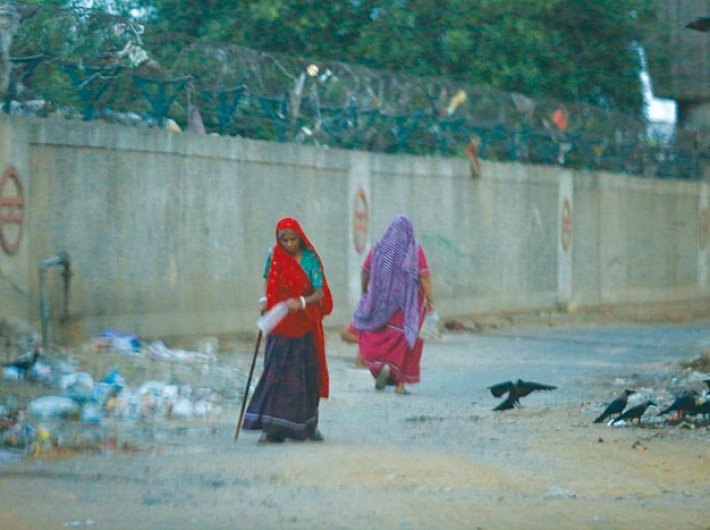Education, empowerment, and encouragement will ensure the success of Swachh Bharat Mission
Open defecation is an issue that plagues our country every morning between 2 am and 6 am!
To get rid of this practise from Indian society, prime minister Narendra Modi on October 2, 2014 announced the Swachh Bharat Mission (SBM). The Swachh Bharat Mission is a spin-off from the Nirmal Bharat Abhiyan (NBA) launched by the Congress which was itself an evolution from the Total Sanitation Campaign.
While SBM covers a wide array of issues from garbage to environment. Its most important focus is on the issue of sanitation. Wielding a broom on the streets of New Delhi with sweepers after the announcement was made, some might argue that it was a political gimmick, but when more than half the country, as per the 2011 census, has no access to toilets, it is a much needed publicity.
Be that as it may, three years have passed since the programme kicked off. But the real question is, has there been any significant contribution of the scheme? According to the national portal sbm.gov.in, the government claims 50 million toilets have been built in the last three years, which obviously means 50 million people have benefitted from the same; or have they really? The counter argument is that the mammoth target set for 2019 may not be reached as it hasn’t even reached the halfway mark. But can we really blame the government for the failure, if it comes to that?
Beneficiaries of the scheme in certain parts of India have converted their toilets into store rooms, and tailoring shops! This highlights a very important issue; the aspect of bringing about a change in people’s mindset. The success of this project revolves around three key aspects or the three Es – education, empowerment, and encouragement.
However, with education, things are to change for sure. We at Public Affairs Centre are currently working on a project titled ‘Improving Consumer Voices in the Swachh Bharat Mission’, and having travelled extensively for this project in two states – Tamil Nadu (best performing) and Odisha (worst performing), I have come to understand that the three Es play a major role.
The issue in Odisha is that of low awareness and community members have zero knowledge of their entitlements and the know-how of constructing a toilet. Our intervention has now encouraged them to demand for their rights, which has directly led to increased toilet construction and thereby its usage.
The issue in Tamil Nadu is that of ensuring universal toilet usage. People who initially refused to construct and use toilets changed their mind once they were made aware of the significant health factors. Similarly, empowering those without voices such as the women folk– as they are the worst affected by the lack of toilets, we were able to inculcate the habit of using toilets among a lot of reluctant old timers.
The third E – encouragement - in the form of peer pressure played a very strong role. Publicly appreciating those who made a decision to drop the practise of open defecation encouraged other community members to follow suit.
Participation is the key. This is a two-way street. And it works! We have seen examples in both Tamil Nadu and Odisha, when community participation enhanced the rate of success. The government can only do so much to help the people; the onus is now on us to carry forth the vision to make India Open Defecation Free.
(Vadanan is the Communication Officer at the Public Affairs Centre.)
